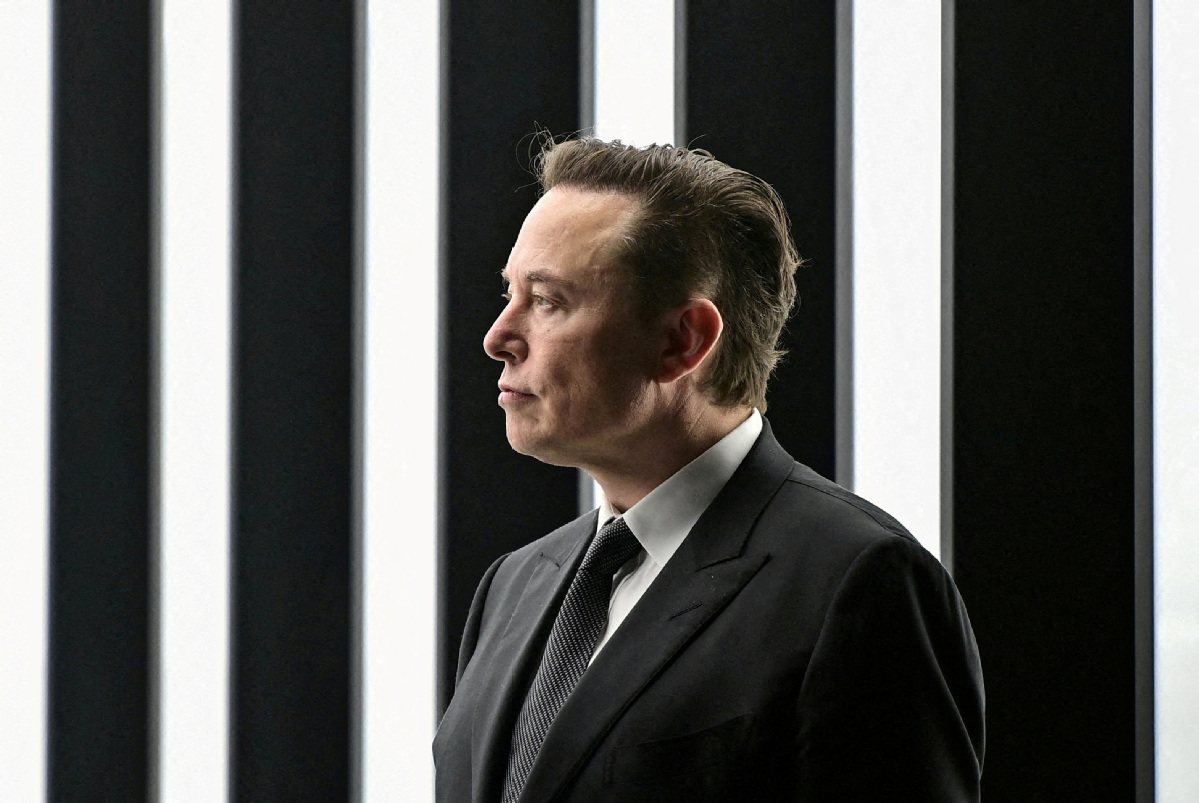Musk envisions ties with China partners

Tesla CEO's article stresses cooperation in clean energy, AI, high-tech and space
Elon Musk, CEO of electric vehicle maker Tesla Inc, called for cooperation with like-minded Chinese partners in clean energy, artificial intelligence, human-machine collaboration and space to jointly create a shared future.
Musk is the latest US entrepreneur to embrace a warm attitude toward Chinese partners in cutting-edge technologies, which will benefit the world, experts said.
Musk said Tesla was established to solve the problems of energy revolution, and Chinese enterprises cannot be neglected in the transition.
The senior executive made the comments in an article for a magazine of the Cyberspace Administration of China, the nation's top internet regulator. The article was published online in Chinese on Tuesday.
Dong Yifan, assistant research fellow at the Beijing-based China Institutes of Contemporary International Relations, said: "Musk's comments highlight that the opportunities of the Chinese market and the appeal of Chinese partners are unparalleled for large global companies. That is especially true amid the COVID-19 pandemic.
"China's efforts to promote industrial transformation and upgrade will continue to create tons of opportunities for foreign companies. Healthy China-US technological ties will benefit the world."
On Saturday, the millionth China-made Tesla EV rolled off the assembly line at its Shanghai plant, which means the facility has produced around one-third of all vehicles the US carmaker has sold across the world. The carmaker said the Shanghai facility is "the most efficient" unit of its global production network.
Musk's nod to Chinese partners in AI also reflects the benefits that would ensue if China-US cooperation deepens in the strategically important technology sector, experts said.
A report from Stanford University showed that China and the US team up to an astonishing degree for research in AI, despite geopolitical uncertainties. China-US collaboration on AI research has quintupled since 2010 and totaled 9,660 papers in 2021, with researchers on both sides seeing benefits in sharing expertise and working together, the report stated.
"What's clear is that the amount of collaboration between the US and China (in AI) has gone up dramatically, and it has gone up much more than any collaboration between two other countries," said Raymond Perrault, an AI researcher and a distinguished computer scientist at SRI International, which was formerly known as the Stanford Research Institute.
The rising bilateral cooperation came as China is emerging as a pioneer in AI. The nation filed more than half of all the world's AI patent applications last year, and Chinese researchers produced about one-third of AI journal papers and AI citations in 2021, according to the Stanford University report.
Despite such positive trends, the US government recently adopted a series of well-calculated restrictions or controls on the export of advanced semiconductor technology to Chinese tech companies, threatening to disrupt the global semiconductor industrial and supply chains.
Frank Meng, chairman of Qualcomm China, said earlier in an interview with China Daily that strong relationships between global technology companies are the biggest stabilizing force for global collaboration, and the US chip company is upping its investments, expanding its presence and seeing a growing list of partners in China.
Qualcomm will continue to engage closely with China's industries to jointly build a digital ecosystem, and advocate speedy adoption of 5G, AI and the internet of things across industrial sectors to help fuel China's high-quality economic development, Meng said.

